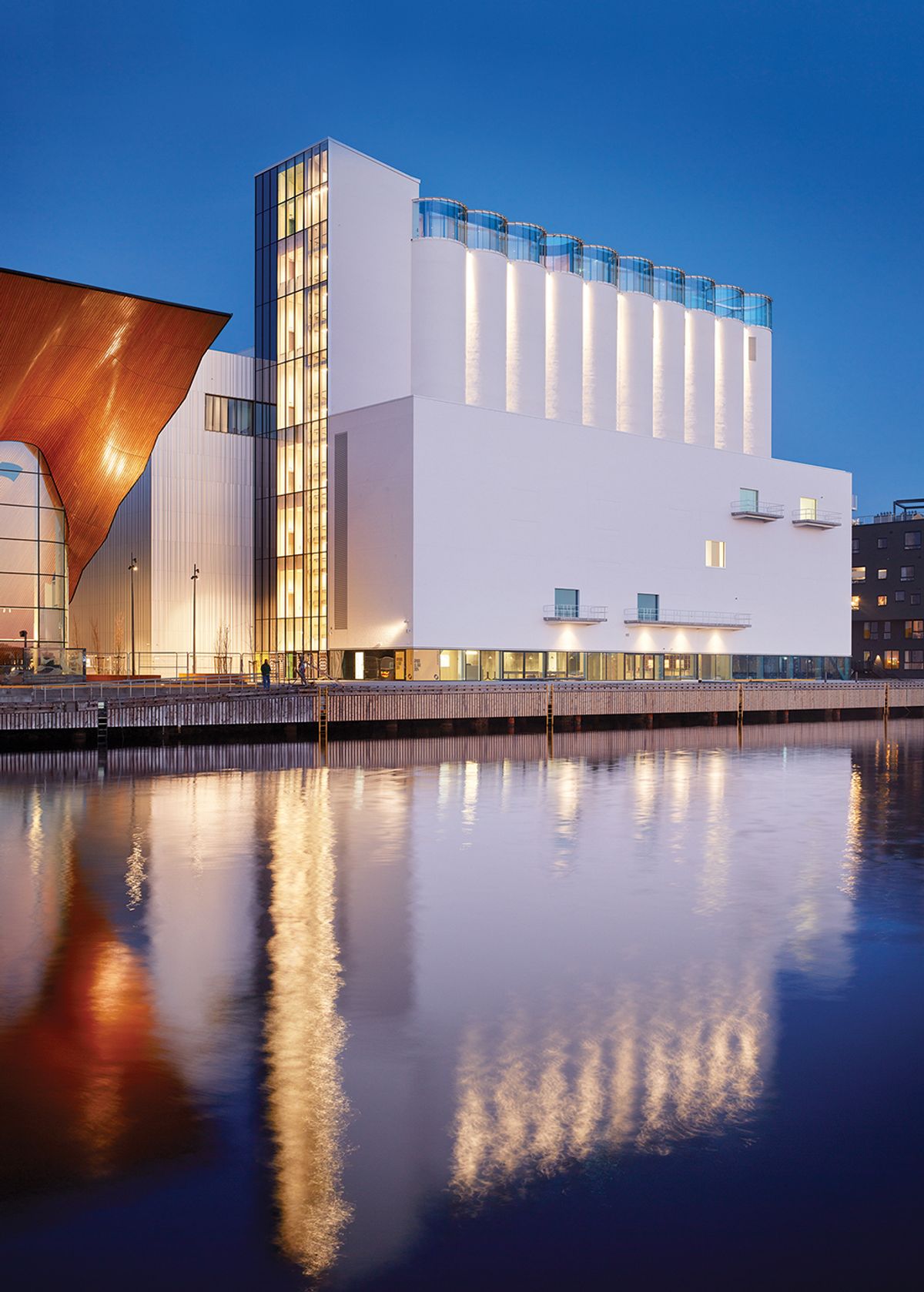One of Norway’s richest men, Nicolai Tangen, a former hedge fund manager and philanthropist, is the driving force behind a major new museum that is scheduled to open on 11 May in Kristiansand, a small city on the southernmost tip of Norway.
Tangen, a Kristiansand native, has amassed the world’s largest private collection of Nordic Modernist art, which will be housed and displayed at the new museum, known as Kunstsilo.
Following in the footsteps of South Africa’s Zeitz Museum of Contemporary Art Africa, Kunstsilo has taken shape in a former grain silo, completed in 1935. The conversion was designed by Mestres Wåge Arquitectes and the architectural studio MX_SI, both based in Barcelona, who transformed the Brutalist architectural landmark originally designed by the celebrated Norwegian architects Arne Korsmo and Sverre Aasland. The cost of converting the building was around NKr710m ($65m), with Tangen providing funding of NKr210m ($20m), says Reidar Fuglestad, the chief executive of Kunstsilo.
Three collections
Kunstsilo will have three floors and 35,500 square feet of exhibition space. Organised by four full-time curators, the art on show will be drawn from three collections: the local government’s stock of southern Norwegian art, formerly housed at the Southern Norway Art Museum; the Christianssands Picture Gallery, founded in 1995; and the Tangen Collection, which is overseen by the AKO Foundation charitable trust established in 2013 by Tangen.
The Tangen Collection comprises 5,500 works across a variety of media by more than 300 artists from Denmark, Finland, Iceland, Norway and Sweden. Artists represented in the collection include Gunnar S. Gundersen and Marianne Heske of Norway, Finnish-born Sam Vanni and Per Kirkeby of Denmark.
“The special thing with this collection is that all of the Nordic countries are well represented, from Norway and Sweden to Denmark, Iceland and Finland,” Fuglestad says. He adds that a symposium will be held at the museum this autumn focused on the Nordic holdings.
“It will be interesting for us to take a position regarding Nordic Modernism and build curatorial competence around this,” he says.The inaugural show, Passions of the North, is inspired by “conceptual themes drawn from literary giants like Thomas Hardy and Virginia Woolf … unfolding through 25 rooms,” according to a project statement. The exhibition will include more than 700 works dating from between 1910 and 1990 drawn from the Tangen Collection.
Career break for art
Tangen tells The Art Newspaper: “I think Kunstsilo could be some kind of game-changer in the Nordic art world and I hope it will lead to more competition and more opportunities for cooperation across the Nordics.” He currently runs the world’s largest sovereign wealth fund—overseen by Norges Bank Investment Management in Norway—which was set up in the 1990s to invest in the nation’s surplus petroleum revenues in companies around the world (the fund recorded a profit last year of $213bn).
Between 2003 and 2005, Tangen took a career break and pursued a master’s degree in art history at the Courtauld Institute of Art in London. He launched the AKO Capital hedge fund in 2005 and has pledged to give away all his considerable wealth before he dies. He told The Guardian newspaper last year: “I want to die with zero. People who want to die with a lot of wealth, they have completely misunderstood the whole thing.”
Tangen’s future role in the museum will meanwhile be as a board member. “He is very concerned about keeping his distance,” Fuglestad says, pointing out: “This is not a private museum.” It will be “50%-funded by the Norwegian government, the region and the city [of Kristiansand], with the remainder coming from commercial streams such as ticket sales and the restaurant. Our annual budget is around NKr100m [$9m].” The adult entrance fee will be NKr190 ($17.50); under-18s will not be charged.
Who will come? The city of Kristiansand has around 130,000 inhabitants, Fuglestad says, but welcomes around 1.3 million visitors over the summer period. “We have also good ferry connections to Denmark and flight connections directly to Copenhagen and Amsterdam. Besides, the building is an architectural wonder.”


